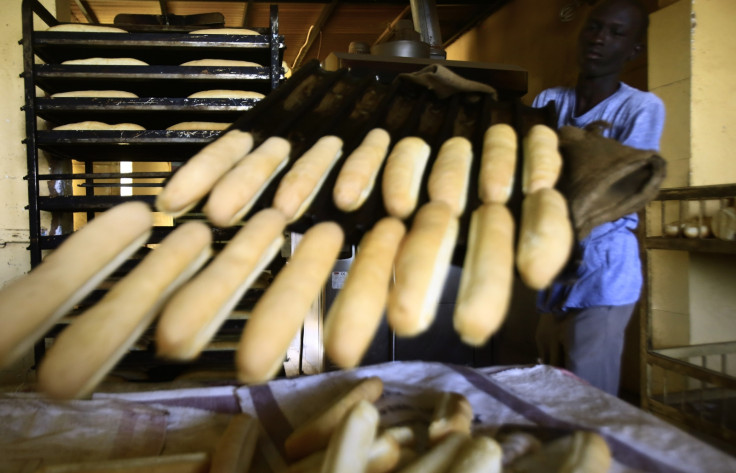Bread prices have doubled in Sudan and now protesters are clashing with police in the streets

KEY POINTS
- Crowds gathered in protest outside bakeries in the capital.
- Sudan's main opposition parties called for peaceful protests against the price hike.
Sudanese police have fired teargas to disperse a crowd demonstrating against a hike in bread prices.
According to Reuters, approximately 400 protesters marched through the city of Sennar, 300km (185 miles) south of Sudan's capital Khartoum, on Saturday (6 January).
Eyewitnesses said police had take action to scatter the crowd but no injuries or deaths were reported.
"We were protesting against the rise in bread prices and we call on the government to scrap it," a protester said. "We can't afford to buy a piece of bread for a whole pound."
Following the government's decision to eliminate subsidies as part of its fiscal budget for 2018, the price of wheat flour rocketed, leading to bread prices doubling. The Bakeries Union said on Friday that the price of a loaf of bread had risen from 0.5 Sudanese pounds to 1 pound (5p to 10p).
Crowds gathered in protest outside bakeries in the capital as Sudan's main opposition parties called for peaceful protests against the price hike.
Considered the 17th-fastest-growing economy in the world eight years ago, the Sudanese economy has since faltered sharply since South Sudan became independent in 2011. The secession dealt a massive blow to Sudan's economy as South Sudan took with it three quarters of the country's oil output, the main source of foreign currency income.
The decision to cut subsidies was part of a broad-ranging series of economic reforms the government has undertaken following advice from the International Monetary Fund. The process of steadying the country's ailing economy, however, was made harder by the sharp devaluation the Sudanese pound has suffered over the last four months.
In October, the currency weakened after the US lifted a two-decade-long embargo, which led to businesses increasing import volumes. That, however, only succeeded in exacerbating an already severe lack of foreign currency and saw Sudan devalue its currency to 18 pounds per US dollar, compared to its previous peg of 6.7 pounds per dollar.






















